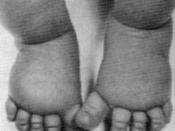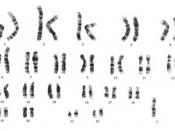Turner syndrome is a fairly common genetic disorder that affects approximately one in every 2,500 female births. Within this genetic disorder, the affected individual experiences many symptoms, most having to do with their lack of sexual development during puberty. Diagnosed individuals have a chromosomal abnormality. Turner syndrome is characterized by a lacking, or deficiency, of the X chromosome, this being the abnormality. All female infants are born with two X chromosomes but Turner Syndrome patients are the exception. The following will describe in detail Turner syndromeÃÂs inheritance patterns and frequencies in the population, as well as symptoms and expressions of the gene, and also how we treat this genetic disorder in society.
What is Turner Syndrome?In 1938 an endocrinologist named Dr. Henry Turner first describes the genetic condition now known as ÃÂTurner SyndromeÃÂ. He had been observing common sets of physical abnormalities in some of his female patients. But it wasnÃÂt until later, in 1960, when Turner Syndrome was formally described and recognized by Ford Etal.
By definition, Turner Syndrome is a ÃÂchromosomal disorder resulting in a syndrome characterized by specific dysmorphic features (short stature) and organ malformations (gonadal dysgenesis)ÃÂ. Basically, Turner Syndrome is the result of a female baby born with only one X chromosome, instead of the normal 2. Affected individuals do not have proper ovarian development, which simply means that their ovaries are usually under developed; this results in infertility as an adult. Being infertile can result in mental pain, leading to depression thus leaving the majority of diagnosed people depressed, infertile, and without an X chromosome.
Who Gets It and Why?The exact cause of Turner syndrome is not known, although there are two main theories behind the cause of this genetic disorder. The first theory is called the ÃÂmeioticÃÂ theory which believes that during the...


